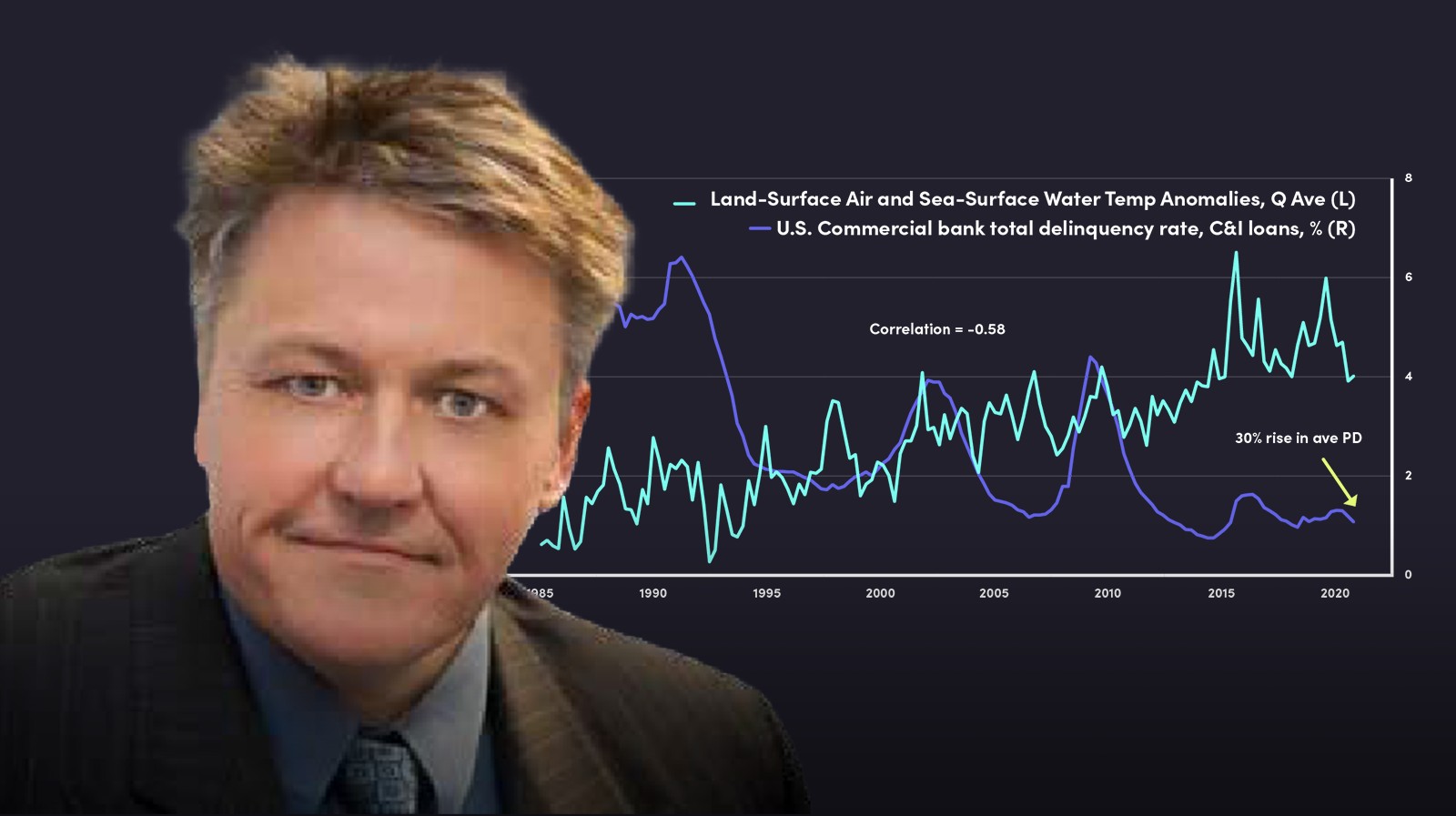
Macro Learnings about Climate-related Credit Losses

Tony Hughes
Climate risk modeller
In this video collaboration with MMF and Grant Thornton, risk modeller and data scientist Tony Hughes outlines the impact of climate change on the financial system. More specifically, why climate change has had a limited impact on the financial system so far.
In this video collaboration with MMF and Grant Thornton, risk modeller and data scientist Tony Hughes outlines the impact of climate change on the financial system. More specifically, why climate change has had a limited impact on the financial system so far.
Subscribe to watch
Access this and all of the content on our platform by signing up for a 7-day free trial.

Macro Learnings about Climate-related Credit Losses
9 mins 4 secs
Key learning objectives:
Analyse the current and projected impact of climate change on the financial system
Explore the macro-level evidence for the impact of climate change on the financial system
Overview:
Despite 50 years or more of global warming, it has been found that climate change has had a limited impact on the financial system. The ECB undertook a climate stress test in parallel to the bank of England's Climate Biennial Exploratory Scenario (CBES) test and they found that corporate probability of default levels would rise by only 7% under a no-action scenario (hothouse world scenario).
Subscribe to watch
Access this and all of the content on our platform by signing up for a 7-day free trial.
According to Tony Hughes, what risk does climate change pose to bank safety?
The financial system is actually surprisingly robust to climate change, and that will actually give us increased scope to take corrective actions. Despite examples of increased peril from global warming, the evidence that past climate change has impacted the financial system is “underwhelming”. This is supported by evidence from the ECB that is in line with the Climate Biennial Exploratory Scenario (CBES) test based on counterparty probabilities of default (PDs), they found that under a no-action scenario corporate PDs would rise by only 7%.
How does the financial risk from climate change compare to the financial crisis?
If the calculations on PDs related to climate change are compared against the global financial crisis (GFC) back in the late 2000s, there is a massive difference. During the crisis, PD levels on mortgage portfolios rose by 2000%. In the GFC there were the types of substantial shocks that were capable of bringing about large-scale or widespread bank defaults, and bank failures, and that's what most people would typically view as financial instability.
What is the macro-level evidence for climate change impacting the financial system?
Over at least the last 50 years we've seen rising temperature anomalies and falling commercial bank delinquency rates.
The trending nature of climate is one of the most difficult aspects of this problem to model because there are various other economic variables that have also trended over this period. So we could look at things like interest rates, for instance, have trended lower since the mid-1980s. We could look at something like the male labour force participation rate, which has also been trending lower over this period, and also the population which has aged over this period as well. These are all long-term economic trends, and so what this means is that if we can find trending factors in, for example, credit risk data, then we still face an identification problem in the sense that it will be very difficult for us to convince ourselves that climate is actually driving that trending behaviour, as opposed to one of these other trending factors that are also present in the economy.
To determine whether the climate is actually driving the underlying trending factors we need to look at or try to find natural experiments. But the point here is that it's very difficult to capture the trends and to be able to actually model them and project them into the future.
Subscribe to watch
Access this and all of the content on our platform by signing up for a 7-day free trial.

Tony Hughes
There are no available Videos from "Tony Hughes"





























